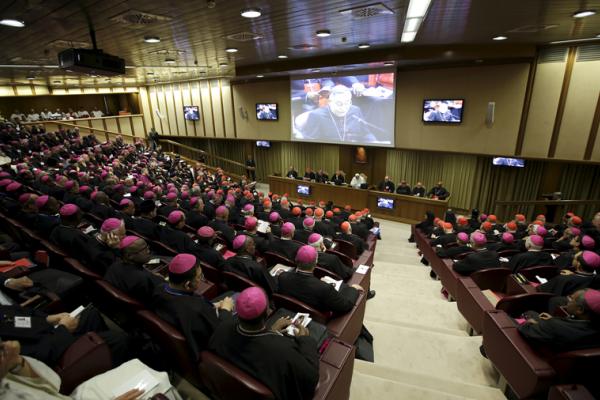Oct 22, 2015
The rows of seats in the synod hall, where Catholic bishops are meeting to discuss family issues, are filled with bishops and cardinals — all male. To find any women, look to the back of the room.
The women’s distance from the heart of the synod hall reflects fears raised by women’s groups that their participation is a mere token on the Vatican’s part.
There are 270 bishops and cardinals participating in the synod and voting on its outcome. A number of other participants, including lay couples and representatives from other churches, have been invited to give their opinions but will not be able to make decisions on the final text. That includes more than two dozen women who have been called to present their views.
Read the Full Article

Already a subscriber? Login
